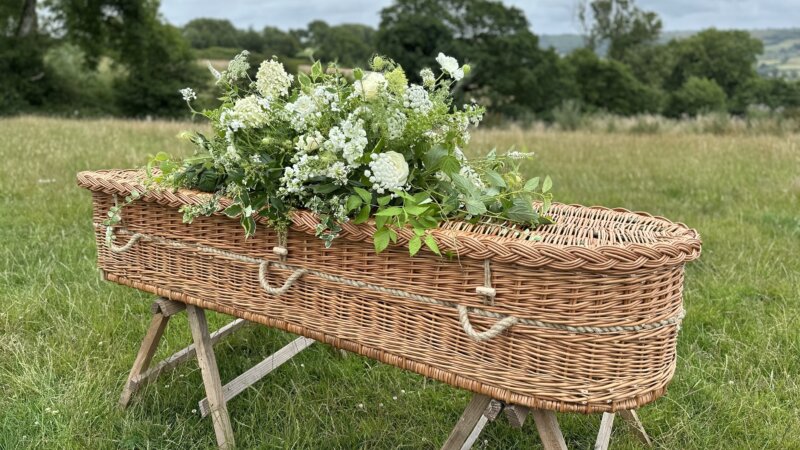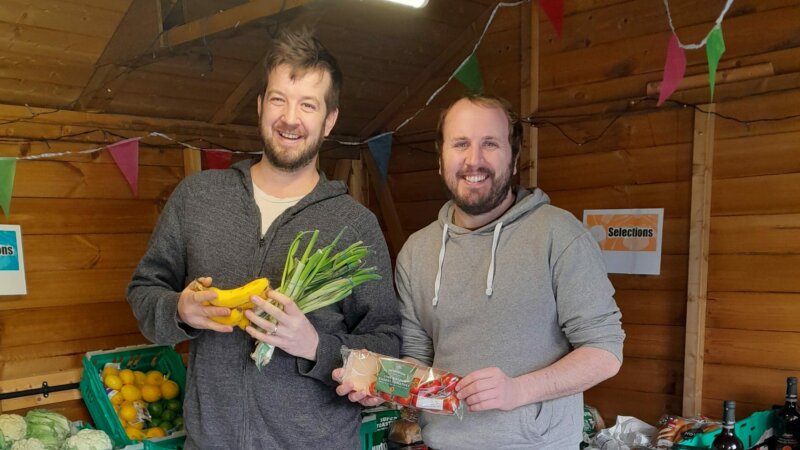Jehst: Not Your Postman
When he's not drifting across the high plains or riding in buses full of Mengi, the man some call Billy Brimstone finds time to make the odd tune or two. It's been five years since the world last heard from William G Shields, and with new album The Dragon of An Ordinary Family due for release this month, we were excited to catch up with the man we all know as Jehst.
The Dragon Of An Ordinary Family sounds fresh and has a really distinct feel. Do you have a set process when it comes to writing music?
Not really. I try to let things come naturally, but obviously you have to be in some kind of routine or environment to allow that to happen. The main thing is to create space and time, so that I'm not distracted and can let things just happen. Sometimes it ends up well, other times it just becomes another loose end sitting on a hard drive or MPC. To be honest, it's difficult making time for music, to be able to really focus without the other things that come with it, like expectations, which tend to take over.
You produced four tracks on this album. You produced all of the Underworld Epics LP in 2006 and some of the remixes on the Mengi Bus Mix Tape the following year. Do you prefer to be on the boards or the mic?
In a lot of respects I prefer to be in the producer's chair, as there is a lot less pressure. You can apply your skills and knowledge of music without having to let the world into your life, your personal space. For me it's important that lyrics are open and personal and you get my personality shining through in what I write. That's a much harder skill to just switch on and off. With production, because there is a process, it's sometimes more of a release and can be less draining. They are very different, but production just lets me get through to the sound, vibe and energy of the music. Lyrics are a lot more intrusive, because of the performance aspect. Even in a studio you have to perform, and being a performer can be very difficult. However, production is a much more solitary thing. With writing you need to have people around to bounce energy and ideas off.
Do you think there'll be a point in the future when you drop the mic altogether and concentrate fully on production?
I can see that happening in the future. I do love it. I'm a fan of rap and the rappers I really consider to be artists, who I can really listen to and get into the stuff that they write. The mic is a major interest, influence and something I really love, but sometimes being in the limelight is not what you need. I don't think I'll ever drop it completely, but I think there is more longevity in the production side.
I don't want to be constantly gigging forever. I'm happy to do tours and I still love it, but it's more to do with the performing aspect and actually putting yourself out there. Just producing and writing music is a pleasure. When I think of production as a concept, I think a lot of people in hip hop forget that it's not just beat making - it involves every aspect of the production process, until you have a finished song at the end of it.
The response to the video for 'Starting Over' from your new album has been overwhelming. How did the idea of you as a postman come about?
Firstly, big thanks to Ian Pons Jewell, who directed the video and contributed to the whole concept and psychology behind it. Also to Adam Burnet, who didn't actually work on it but helped come up with the day job viral idea. It grew organically from conversations we were having, and the response to it validates our intentions of being a bit more artistic regardless of the song. I wanted to do something out of the box. I'm so bored of the standard music video format, especially rap videos. It's another platform for expression and people don't really think about videos enough. It's too easy to fall into the trap of just making a video without any artistic intention behind it. You need something that stands up on its own, not just to advertise the song, but so it can have an impact on people.
So is this something we'll see you focusing on?
I never got into this to be in music videos. I'm not really a fan of celebrity culture, or the way the internet has turned everyone's life into a type of celebrity culture. I mean, people's daily lives are broadcast via Facebook and Twitter. Everything is getting to be like Hello magazine. People don't realise this is what we've been sucked into. I think for creative people, in particular musicians, there is this massive pressure to be a constantly visible person. I'm from an era where you would get a mixtape and you would have no idea what the person looked like. I remember first listening to Wu Tang and other artists through mixtapes, white labels and pirate radio stations. The music really stood alone. I really miss that. It's something people get from some kinds of electronic music, because it's not about a frontman - it's about a sound. I think that's been lost from 99.9% of hip hop and I miss it.
Your career has spanned a good 11 years. What tips do you have for budding producers or emcees?
Producers need to understand it goes beyond just making beats. They need to really be proactive in terms of getting a performance out of vocalists and making it as simple as possible. If you want to see results you've got to get out there, rather than just making beats and hoping somebody picks one of them up.
Emcees need to be very aware of that. They need to know whether or not the producers they are working with are going to be able to facilitate the recording and actually get to a point where it's a finished product. I guess they need to make sure they have good recordings, performance skill and to be very careful who they get involved with. They need to draw a line between their business and personal lives, to have an idea of what they want to get out of it and what they bring to the table.
I think some people just decide they want to be in music, but what exactly do you want to do? They need to choose, otherwise you just get dragged along and swept away. It's very easy to lose focus and direction, even when you have a strong identity. It's very easy for people to manipulate or overly influence. Also, if you don't want to have any part in the business side, you want to consider if you should put your music out there for the public or if it's something you want to keep to yourself.
You co-run YNR records. How are things looking on that front?
I'm trying to simplify the label side of things - to switch the focus so I'm not trying to be the saviour of UK hip hop and take that responsibility off my shoulders. I think I've kind of done that since Lowlife Records collapsed and people lost interest in hip hop coming out of this country. I took it upon myself to try and maintain that legacy and take it into the future, but now I think I owe it to myself and the fans to not take five years between each album.
The label is good. I think in the future we will focus on turning digital singles around quickly and bringing back vinyl. For a while vinyl became a grey area for many labels within hip hop, because of DJs going digital. But the smoke has cleared and people know that if you have a strong product, there is still a massive audience of real music lovers who want the physical product.
Vinyl is still a prestigious format. I'm looking forward to taking it back to its roots, where the focus was putting out 12-inches, rather than releasing these big albums. Selling CDs and albums is working to a major label template and it's kind of dead. I do think albums are important - I don't want that to be taken the wrong way - but I also think some artists and labels go into the album concept for the wrong reasons. There is a lot to be said for the immediacy of singles. I think a positive side of digital music is that it's brought that back around. It's so easy for people to access music that there's more focus on the song, rather than albums. With singles as well, you are writing the best song possible and releasing it to the public. In some respects it's much more stripped down and puts a bigger emphasis on songwriting and communication with the audience.
Are there any upcoming releases and future talent to look out for on YNR?
Micall Parknsun is in the studio now making his new album, with a working title of Me, Myself and Akai. An album I produced for Kashmere is coming out before the end of the year. There's an upcoming Telemachus 7-inch. Jyager is working with the band Polar Bear - I can definitely see him going a long way.
What are you listening to at the moment?
I'm not getting a lot of time to listen to music actually, because with the album coming out I seem to be constantly at meetings, interviews and shows. I have less time to listen to music, which is something that pains me. Music is what I love, and if I had my way I'd probably just sit around the house flicking through records.
I have made a conscious effort to listen to new hip hop, as I was starting to feel like there wasn't a lot I could relate to. I started falling out of love with it a little bit, but the new Pharaohe Monch album is good. I've been listening to a lot of older stuff, whatever I pull out of the crate on that day. It could be Donald Byrd, King Tubby or a nameless white label Polish jazz record. I'm still trying to keep that crate digging mentality, because I think it's an important part of hip hop, especially on the production side.
It's hard with new music. There is stuff I've made a point of checking out, like the new Jamie Woon album, but I'm always back-tracking to old stuff. Recently I've been getting into Mulatu Astatke and Arthur Verocai. Kidkanevil's Basho Basho is a dope album. I mean, when he first came out he was very much on the hip hop side of things, but that album is very much in its own category. I couldn't really put it in a genre. He is just doing his thing. He's an anomaly in the sense that he just goes with what he feels. It's nice to see someone whose career is building and there seems to be no pressure to conform, replicate or fall into formulaic processes. He just comes up with something fresh every time and it's always a progression. That's the mark of a true artist. It's that art vs. commercialisation situation, where there's always pressure to conform to what your fan base expect, like when Bob Dylan went electric. He got such a backlash when he tried to make that change. )





